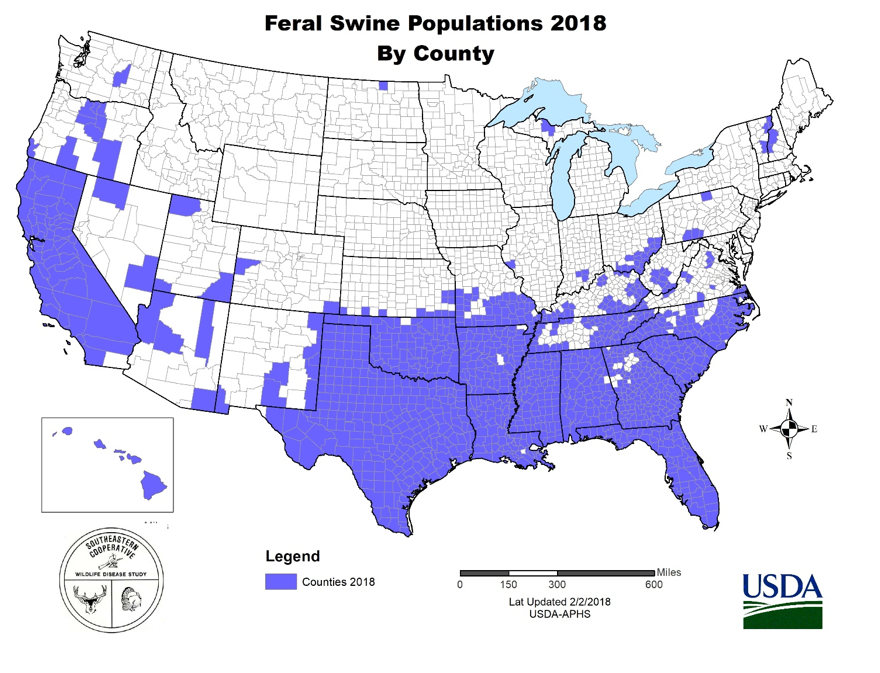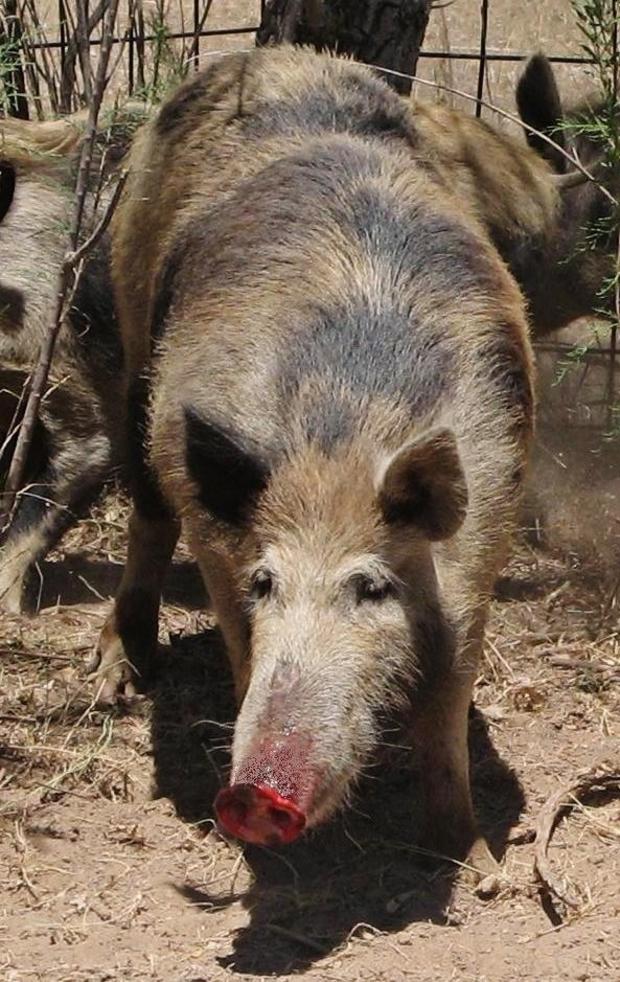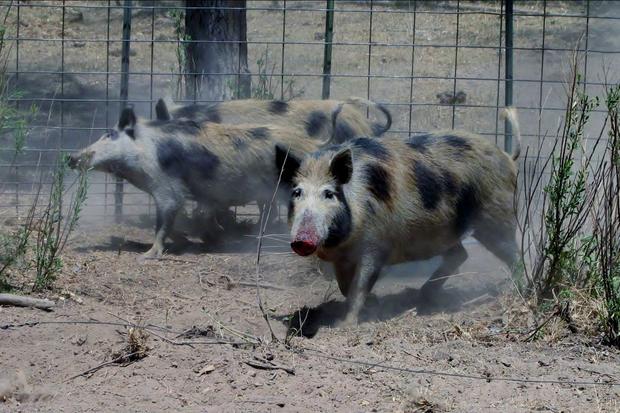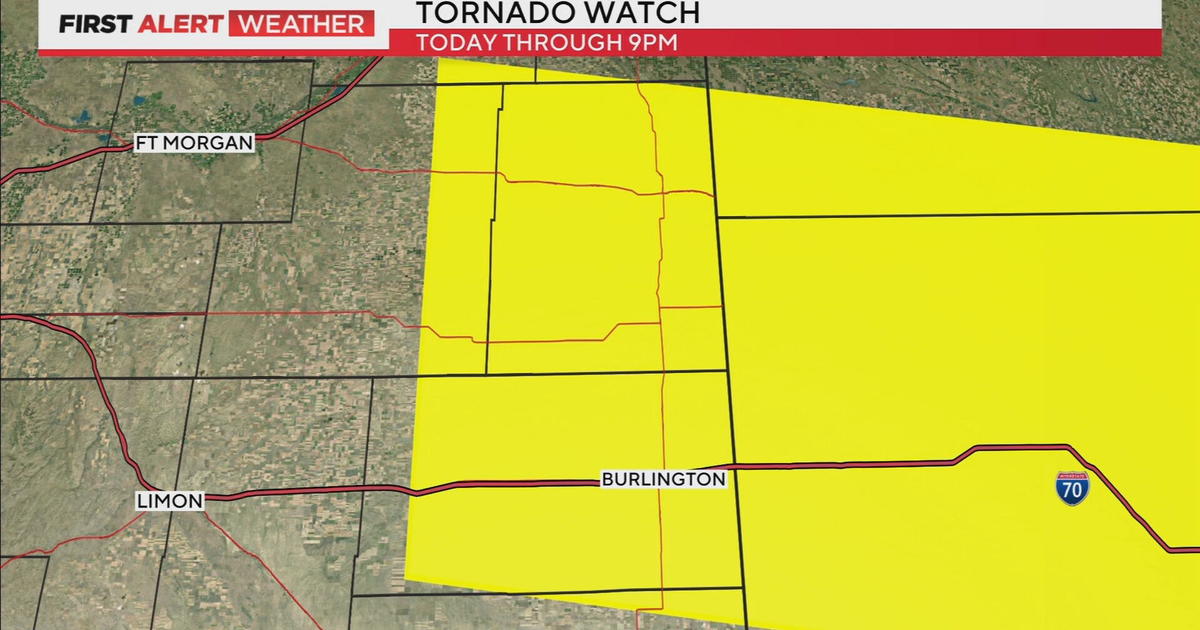Wild Pigs In Colorado? Not Anymore, Say Wildlife Officials
(CBS4) -- The Colorado Parks & Wildlife declared Wednesday that all known feral swine had been eliminated from the state. Colorado became the first state in the country to do so.
"We believe we're the first state that has a feral swine issue to successfully eradicate," said Bill Vogrin, Public Information Officer for CPW's Southeast Region.
Feral swine were first noticed in Colorado in the 1970s, per Vogrin. But by the early 2000s, two large populations were thriving in his portion of the state. One herd in the Big Creek Creek drainage through Cheyenne and Kiowa counties numbered 250 animals. Another group in the Cimarron River drainage of Baca County had grown to 100 head.
Officials trapped, euthanized, and hunted the animals from aircraft, Vogrin said. They also gave hunters "open season" permission to shoot the swine on sight.
As in other states, eliminating the invasive species was a priority due to the pigs' ability to destroy farmland and multiply.
"Feral swine are incredibly hardy animals and can survive, even thrive, in almost any habitat," CPW stated in a press release Thursday. "That combined with high reproductive rates makes their ability to establish new populations extremely effective."

"They do terrible damage," Vogrin continued. "They out-compete native species for food. They'll kill them. They're also dangerous (to humans). I mean, have you ever encountered one? And they're prolific. They can breed every six months."
The animals cause billions of dollars nationwide each year by rooting up crops and pastures, according to the USDA. They also spread disease to wildlife, livestock and humans, are responsible for the destruction of wildlife habitat, and often prey on many ground-nesting birds and their nests.
A national feral swine management program was launched in 2014 by the USDA. Colorado began its efforts a decade earlier.
The news of Colorado's success was celebrated by Deputy Regional Manager of CPW's Southeast Region, Travis Black.
"The eradication of feral swine will help protect and benefit Colorado's agricultural crops and livestock as well as wildlife, wildlife habitat and private and public lands," Black said.
A March 2019 article in the Grand Junction Sentinel reported four feral swine were spotted near Hotchkiss. The four were tracked and euthanized, according to wildlife officials.
"It's legal for us to euthanize these animals," CPW's Joe Lewandowski told the newspaper. "They're not wildlife and they're not native."
Officials credited the successful eradication to a task force formed between CPW, the Colorado Department of Agriculture, the U.S. Department of Agriculture, and the U.S. Forest Service about 15 years ago. The task force will remain intact to continue to monitor and respond to any sightings.
"This is not the end of the story. There could still be pigs out there," said CPW's Vogrin, adding that pigs can cross state lines. "We don't want them here."
Vogrin said a DNA analysis on a Baca County pig killed in 2018 judged it to be 30 percent domestic (livestock) pig and 40 percent Russian boar, a species previously known to wildly inhabit portions of Texas. So, migration into the state is still a possibility.
Cost of the eradication was not mentioned by officials, but Vogrin said it Colorado's figure, whatever it was, would be conceivably minor relative to the "enormous savings" of "getting these things off the landscape."
Coloradans who see feral swine or transportation activities of the animals are asked to contact the USDA Wildlife Services at 1-866-4-USDA-WS (1-866-487-3297) or Colorado Parks and Wildlife at 303-297-1192.





